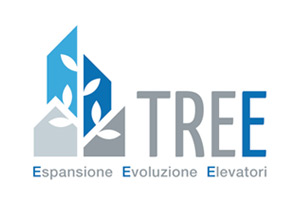European DIGITAL SME Alliance is a founding member of Small Business Standards (SBS); as such, it works towards a better suitability of standards for small and medium enterprises. Through SBS, it took a leading role in the kickoff of a new IoT pla…
Read time: 2 mins
The context
European DIGITAL SME Alliance is a founding member of Small Business Standards (SBS); as such, it works towards a better suitability of standards for small and medium enterprises.
Through SBS, it took a leading role in the kickoff of a new IoT platform connecting lifts in an interoperable way, through the oneM2M Smart Lifts standard. In 2019, the TRE-E consortium's project manager Marco Cogliati, heading a grouping of 18 SMEs active in the Italian lifts sector, joined SBS through the European Federation for Elevator SMEs (EFESME). Standardisation became a key tool in order to push for an effective and interoperable lifts platform system.
Through standardised data formats and connectivity, TRE-E was able to efficiently share information and build an industrial IoT platform to connect lift providers, users, maintenance, and secondary service providers. Through this platform, the consortium was ultimately able to manage the entire installed base of almost 40 000 lifts, with the potential to scale up throughout Italy.
The challenges
Achievement of an effective and interoperable lifts platform system through Standardisation.
How standardisation activities help face the challenges
- With more and more buildings needing elevators, production and maintenance of the lifts was spread out among different players who needed to communicate with one another and stay up to date.
- An additional complicating factor was the diverse provenance and significant age difference of components, due to a lift sector highly fragmented between old and new installations.
- Standardisation enabled interoperability between all systems and market actors.
The Benefits
This success story highlights what SMEs can achieve if they work together in synergy. Standardisation enabled a large number of stakeholders to work together in a more efficient way, with direct benefits for end users.
The TRE-E consortium was also able to count on the work of other SMEs, Tecnodal and Elettroquadri. These 'digital enablers' were crucial in providing the software and hardware for the smart lift control panels - thereby contributing to the success of the oneM2M Smart Lifts standard. Collectively, all these SMEs formed a sustainable digitalisation ecosystem that builds on openness, interoperability, standards and innovation.
Overall, such initiatives hold immense potential for Europe's green transition. Instead of disposing of old lifts entirely, the innovative consortium can 'upgrade' them and connect them to the cloud - extending the life cycle of lifts. Analysis of usage data also makes their reparation and maintenance more efficient and cheaper for the consumer, while optimising their energy use.
Future plans
The consortium intends to continue their work, continuing innovating in order to optimise the platform even further. The use of artificial intelligence for predictive maintenance is notably considered.


